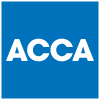If you fail to carry out checks on suppliers of labour to your business, you could become liable for unpaid National Insurance Contributions and denied input VAT claims.
HMRC expect businesses to carry out adequate checks on their suppliers to allow them to make informed decisions as to their integrity.
HMRC’s guidance on the matter is based around three principals:
Check – Know your own risk – legal, financial, tax and social obligations, and those of your suppliers.
Act – Carry out robust due diligence on your suppliers. If risks are identified do not ignore them, act to mitigate or remove the risk completely.
Review – Effective due diligence needs continuous monitoring and review.
HMRC have recently updated their extensive guidance on their website to assist businesses in following these three principals. It could prove very costly for businesses that fail to meet these obligations, as should HMRC look to recover unpaid taxes from the business, the amounts involved are likely to be very large. It is also possible that HMRC would seek to impose a penalty and fine.
How we can help
We aren’t just your average accountants. We offer a wide range of business advisory services to help you make the right decisions for your business to grow and improve. With over 40 years experience our team is dedicated to really understanding your business. We believe by staying up to date with not only current but changing legislation and industry news we are better placed to help our clients and their businesses succeed.
If you would like to know how Loucas can assist you please do not hesitate to contact us.
Read our related blog on 5 ways to make sure your business gets paid faster





